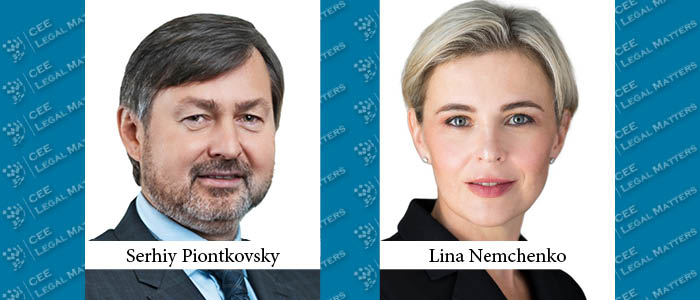On 22 June 2023, the Law of Ukraine on Amendments to Certain Legislative Acts of Ukraine on Optimizing the Operations of the State Property Fund of Ukraine, Increasing the Effectiveness of State Property Management and Improving the Effectiveness of Sanctions Policy ("Law") became effective.
Highlights
The Law provides for the following:
• Changes in the management system of the State Property Fund of Ukraine (SPFU) aimed at management centralization
• Changes in privatization laws: unblocking large-scale privatization
• The SPFU's authorities to manage sanctioned assets
Detailed overview
Changes in the SPFU management system
• Changes in respect of the SPFU chairperson are as follows:
o The chairperson is to be appointed as proposed by the prime minister of Ukraine and to be dismissed by the Verkhovna Rada of Ukraine (before, the chairperson was appointed by the president of Ukraine upon agreement with the Verkhovna Rada of Ukraine).
o The chairperson will independently appoint deputies (before, deputies were appointed by the president of
Ukraine as proposed by the prime minister of Ukraine).
• Changes in respect of the SPFU regional branches are as follows:
o The SPFU regional branches are to be established and operate as separate structural units without legal entity status (before, they had legal entity status).
o It is no longer required by the Law to agree on the appointment of directors of the SPFU regional branches with local state administrations. Instead, they will be appointed and dismissed by the SPFU chief of staff, who is to be appointed by the SPFU chairperson.
• In addition, the Law abolished the procedure for agreeing on the appointment and dismissal of directors of enterprises, institutions and organizations managed by the SPFU with local state administrations.
Changes in privatization laws: unblocking large-scale privatization
• The Law of Ukraine on Privatization of State and Municipal Property ("Law on Privatization") has been supplementedby a clause pursuant to which a sale and purchase agreement in respect of a large-scale privatization object may include the parties' obligations provided for in terms of auction in respect of the following:
o Performance of the enterprise's main types of activities
o Retooling and modernization of production (amount of investments) and energy renovation of the object
o Accomplishment of mobilization objectives
o Repayment of unpaid wages, debt to the government and overdue payables of the enterprise
o Requirements and additional restrictions in respect of object use provided by environmental laws
o Payment for the services of legal entities and individuals (if engaged) related to taking measures to privatize state-owned objectsd by the NBU remaining prohibited during the martial law period or until the NBU lifts these restrictions.
(Before, the laws envisaged that, for the duration of martial law, the above conditions could only be applied in the event of privatization of property of the Ukrspyrt state-owned enterprise of the alcohol and liquor industry, and no exception has been provided for large-scale privatization objects.)
Thus, the purpose of making it possible to include the parties' obligations (as listed above) provided for in terms of auction in a sale and purchase agreement in respect of a large-scale privatization object is to unblock large-scale privatization.
The SPFU's authorities to manage sanctioned assets
• The SPFU will determine methods to enforce court decisions on applying sanctions in the form of recovery to the state budget of assets owned by an individual or a legal entity, as well as assets in respect of which such individual/legal entity can directly or indirectly (through other individuals or legal entities) perform actions in the nature of exercising the right to dispose of them ("Sanctioned Assets").
• The SPFU will manage the Sanctioned Assets and sell the Sanctioned Assets owned by the residents of states engaging in the armed aggression against Ukraine (the relevant procedure will be approved by the Cabinet of Ministers of Ukraine).
By Serhiy Piontkovsky, and Lina Nemchenko, Partners, Baker McKenzie


